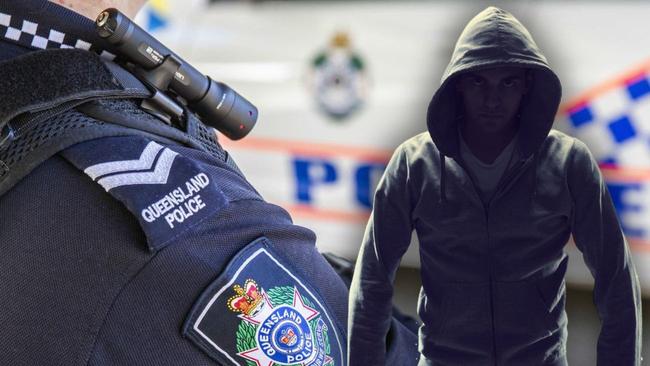Gina McWilliams: Why Wynnum Youth Justice court order is so fascinating
A Wynnum Magistrate has raised a legal question that doesn’t appear to have been the subject of any consideration to date, writes Gina McWilliams.

Opinion
Don't miss out on the headlines from Opinion. Followed categories will be added to My News.
A good friend of mine who lives in Wynnum affectionately refers to it as a “Republic”.
His label, while meant in jest, wasn’t far off during the week when a Childrens Court Magistrate made a blanket non-publication order over all 37 matters in the list that day.
All of the media focus this week has been on the fact that journalists are now permitted to go into Childrens Court matters to report them at the Magistrates Court level, whereas previously they had been excluded from doing so without an order authorising their presence (which was extremely difficult to get).
However, in making one order purporting to apply to 37 different matters, the Wynnum Magistrate has raised a legal question that doesn’t appear to have been the subject of any consideration to date: can he actually do that?
The short answer is highly doubtful.
The longer answer is that before 30 August there wasn’t any reason for Childrens Court to consider making non-publication orders on a routine basis for two reasons.
Firstly, since journalists weren’t allowed in the courtroom they couldn’t report on the proceedings so there was no reason to suppress any part of them.
Secondly, the Youth Justice Act prohibits minors appearing in Childrens Courts throughout Queensland from being identified which is why it is so rare to see a person under the age of 18 named in a court report.
That law hasn’t changed despite the courts now being open to reporters.
These two factors together also explain a third, important feature of the law that underpins the Childrens Court: neither the Childrens Court Act nor the Youth Justice Act contain any express power for the court to make a non-publication order.
A system which prohibits the reporting of a particular kind of proceeding - and prohibits the identification of the subject of that proceeding - doesn’t need a non-publication order making power on top.
That would just be excessive.
However, that doesn’t mean that the Childrens Court has no power at all to make a non-publication order.
Like the Magistrates Court and the District Court, the Childrens Court is a creature of statute and it has an implied power to make orders that are necessary to secure the proper administration of justice in the proceedings.
The really important word here is “necessary” and that concept isn’t new.
Courts, including the Queensland Supreme Court, have already addressed what is necessary when it comes to statutory courts making non-publication orders using the implied power.
An order will always be necessary if information that is going to be revealed in open court would undermine the practical utility of the proceedings.
For example, if a blackmail case went to court and the first thing that occurred was that the very information the victim of the scheme wanted to keep secret was revealed in open court and promptly reported, who would bother making a complaint to the police in the first place?
An order will also be necessary to ensure that proceedings are fair which is why witnesses can be excluded from courtrooms when evidence is being heard that they shouldn’t hear before giving their own testimony and some arguments about the evidence occur on the voir dire: aka in the absence of the jury.

Lastly, non-publication orders can be made where the interests of a particular party or a witness make the order necessary.
The examples often given in relation to this part of the implied power is that you don’t want under-cover cops or covert informants being identified in open court since that would impact upon Queensland Police’s ability to fight crime.
The other thing we know about necessity from the cases that have already been decided is that it has to be established by evidence put before the court on a case by case basis.
If the material put before the court does not come up to the mark, the order being sought cannot be necessary.
The net result of all of this is that it is routine for “embarrassing, damaging or even dangerous information” to be disclosed in open court because none of the grounds of necessity can be established.
The Queensland Supreme Court has noted that it is entirely appropriate to feel sympathy towards people that have this type of information revealed in open court because they don’t have a basis to obtain a non-publication order, knowing that it will be duly reported later the same day by the journalists covering the case.
But that is the price we pay for Australia’s open justice system which is so important that it is often referred to as a “fundamental rule of the common law”.
Openness is the very feature of Australian courts that allows all members of the public to keep an eye on what’s happening in judicial proceedings and call out anything that doesn’t seem fair.
Importantly, openness is also what the Queensland Government was aiming to improve when it changed the law and allowed journalists to report on Childrens Court proceedings.
Where does that leave us in Wynnum?
A blanket order cannot possibly have considered the exact circumstances of each case, based on evidence brought before the court, to determine that the order was necessary 37 times over.
In fact, we know that’s not what the Magistrate did because he told the court that the reason why he was making the blanket order was because “he was concerned the media was misdirecting its focus away from issues such as domestic violence and families living on the street” and “he believed the recent focus on youth crime was a misrepresentation of society’s youth, as he estimated the courts only dealt with one or two per cent of the juvenile population in the children’s court”.
While that is very sympathetic to the children in the Wynnum Court that day, it strongly suggests that the legal analysis required before making an order in each case was not engaged in.
What happens next is anyone’s guess given both the Premier and the Chief Magistrate declined to criticise the Wynnum Magistrate when The Courier Mail’s journalists went to them for comment.
But hopefully other Childrens Court Magistrates won’t follow suit.
Gina McWilliams is a Senior Legal Counsel for News Corp Australia




